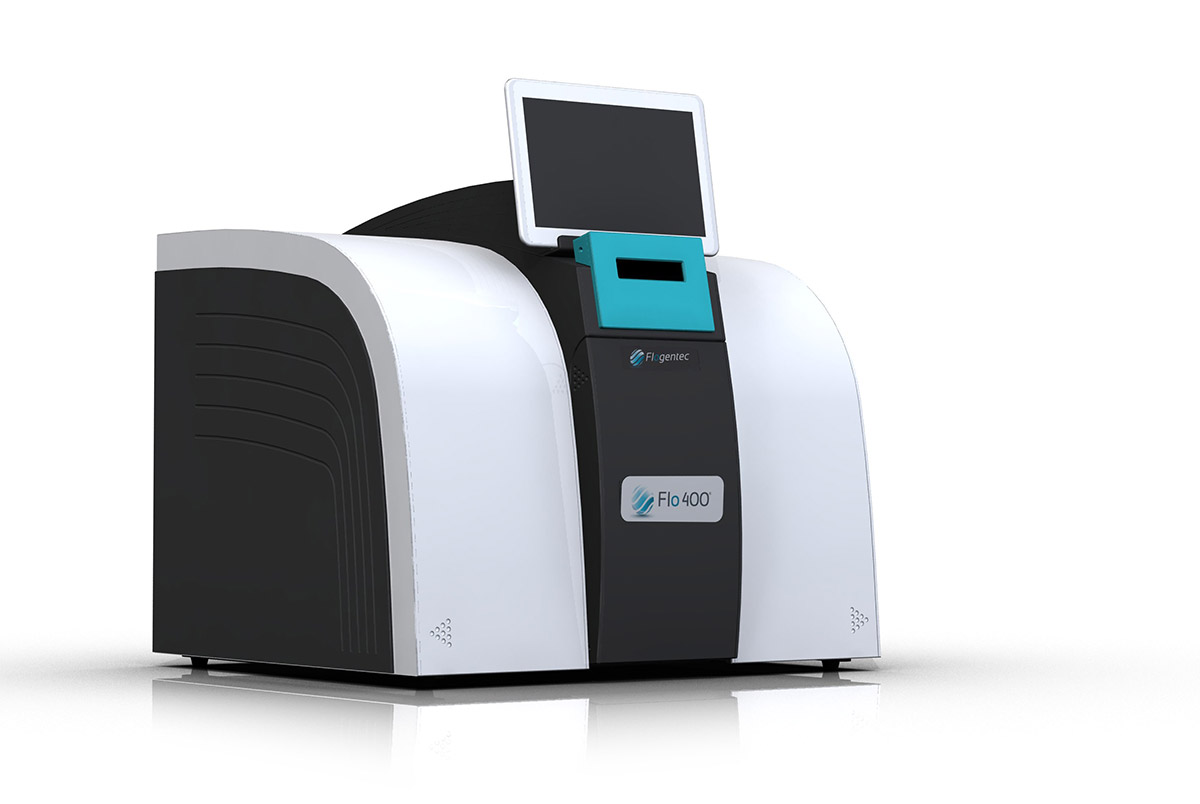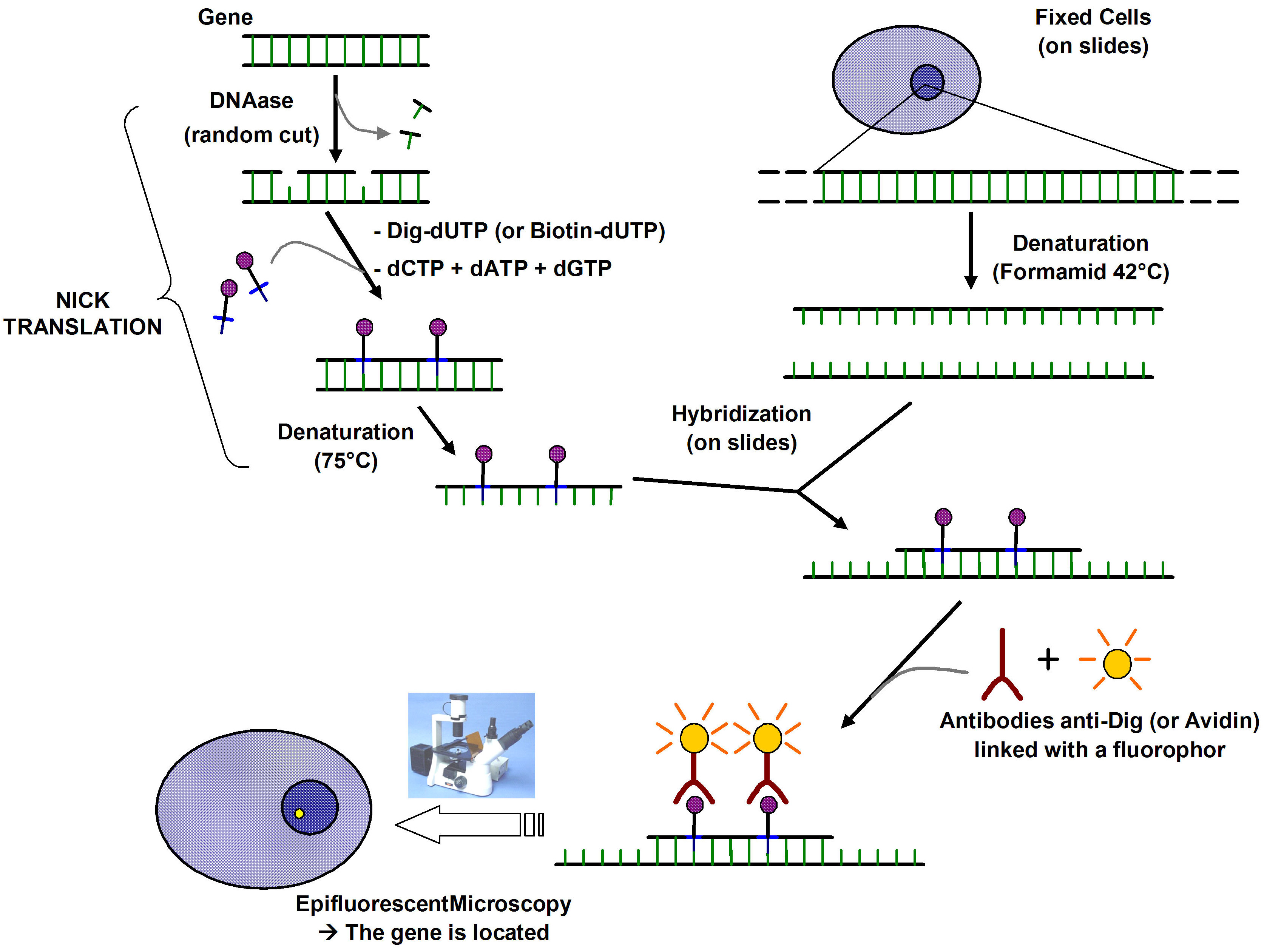Applications
FLUORESCENCE IN SITU HYBRIDIZATION (FISH)
FLO-400: Safe, fast and easy to use search device.
Fluorescence in situ hybridization (FISH)
This method is an indirect detection technique that targets nucleic acids. Its principle is based on the property of 2 complementary nucleic sequences to match each other in a specific and extremely strong way. Nucleic acids are macromolecules that are structural units of cellular components such as DNA.
By using complementary probes coupled with a fluorescent marker, it is possible to accurately study the location or expression of a gene in a sample (slide, tissue, embryo). Fluorescent markers are used to emit a signal when excited at a specific wavelength. The probes must be kept away from light to avoid losing their fluorescence and are visible through epi-fluorescence microscopes.
The FISH protocol can be performed on in toto samples such as embryos or organs that have been collected and previously fixed.
Thanks to the Flo 400, our biotechnology automaton, samples are subjected to a continuous flow of probes, which allows a transfer from the probes to the heart of the cells as well as a preservation of the integrity of the sample. The continuous recycling of probes and solvents reduces the analysis and washing times required to obtain results while significantly reducing background noise. Moreover, due to the opacity of the PLC, the fluorescence loss of the probes is very low or even zero.
The Flo400 PLC can also perform the techniques:
Contact our advisors

Overview
Research in biology is constantly diversifying and becoming more complex with the emergence of new technologies and the accumulation of knowledge. Thus, different fields of applications and experiments in biology are emerging and new high throughput biology techniques are emerging.
In situ hybridization, immunohistochemistry and fluorescence in situ hybridization are tagging methods that provide a clear understanding of the expression of each gene in a spatial and temporal context within a given sample. This allows a characterization of the proteome or genome of the organism studied.
Flogentec thus offers biological automatons that can have several different applications depending on your research field.
FLO-400 Information
FLO400
The Flo400 is a safe, fast and easy-to-use research device that allows 3D samples to be analyzed using the in situ hybridization and immunohistochemistry methods. Thanks to this equipment, it is possible to directly visualize the location and activation of genes of the cells concerned. The means used for this localization is in situ hybridization (HIS) of RNA probes (transcriptome analysis). It should be noted that the automaton also allows proteome analysis by immunohistochemistry, using antibodies instead of RNA probes.





